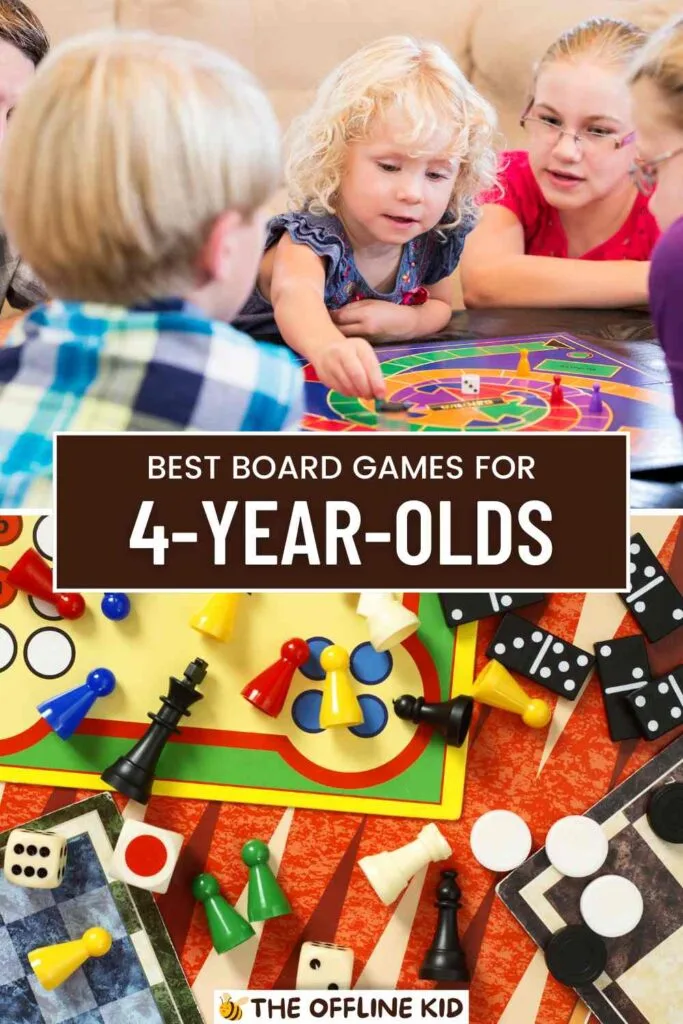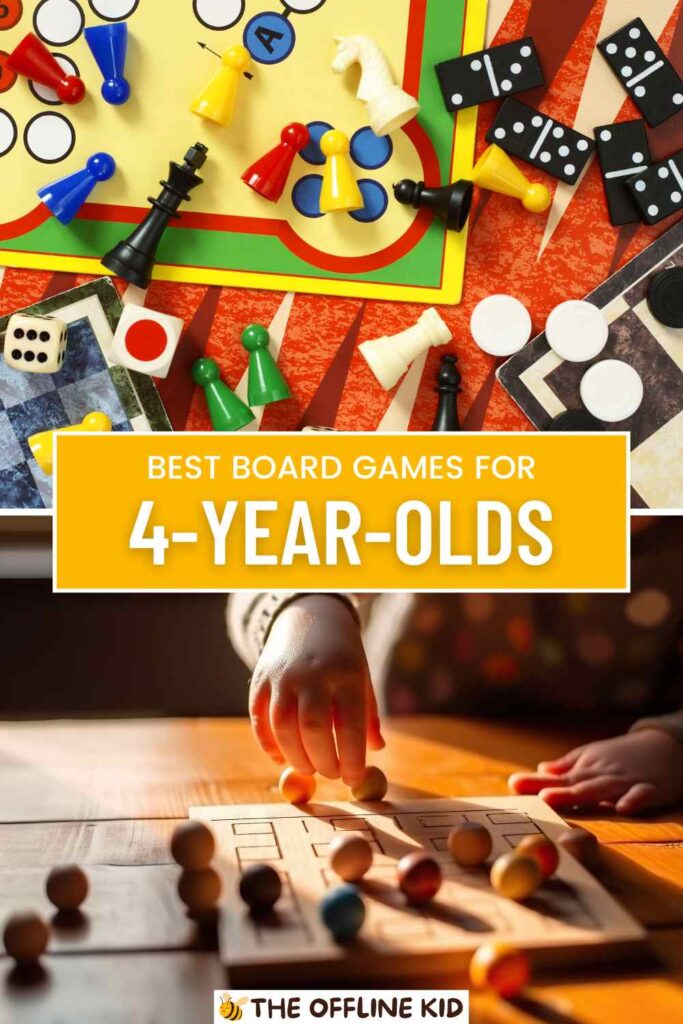Board games are a fantastic way to engage 4-year-olds in fun, educational play.
This guide covers over 25 top board games that boost learning, foster family bonding, and provide hours of entertainment.
Criteria for Selecting Board Games for 4-Year-Olds
Age Appropriateness
Choosing a board game that’s suitable for a 4-year-old is crucial for ensuring they have a positive and engaging experience. Consider the following:
- Age Recommendations: Always check the age range on the game box. Manufacturers often indicate the appropriate age group based on complexity and safety.
- Skill Level: Ensure the game matches your child’s developmental stage. Games should be simple enough for them to understand yet challenging enough to keep them interested.
Educational Value
Board games can be a great way to combine fun with learning. Look for games that promote:
- Basic Skills: Games that teach numbers, letters, colors, and shapes.
- Critical Thinking: Activities that encourage problem-solving, strategy, and decision-making.
- Social Skills: Games that require taking turns, following rules, and cooperative play.
Fun Factor
It’s essential that the game is enjoyable for both the child and the family. Consider:
- Engagement: Games should captivate the child’s interest with colorful designs and interactive components.
- Replayability: Choose games that children will want to play repeatedly without getting bored.
- Simplicity: Games with straightforward rules and short playtimes are ideal for maintaining a young child’s attention span.
Durability and Safety
Since 4-year-olds can be quite energetic and rough with their toys, durability and safety are key.
- Sturdy Materials: Opt for games made from robust materials that can withstand frequent handling.
- Safety: Ensure that the game components are large enough to prevent choking and made from non-toxic materials.
By focusing on these criteria, you can select board games that are not only fun and educational but also safe and suitable for your 4-year-old, providing them with a rich and rewarding play experience.
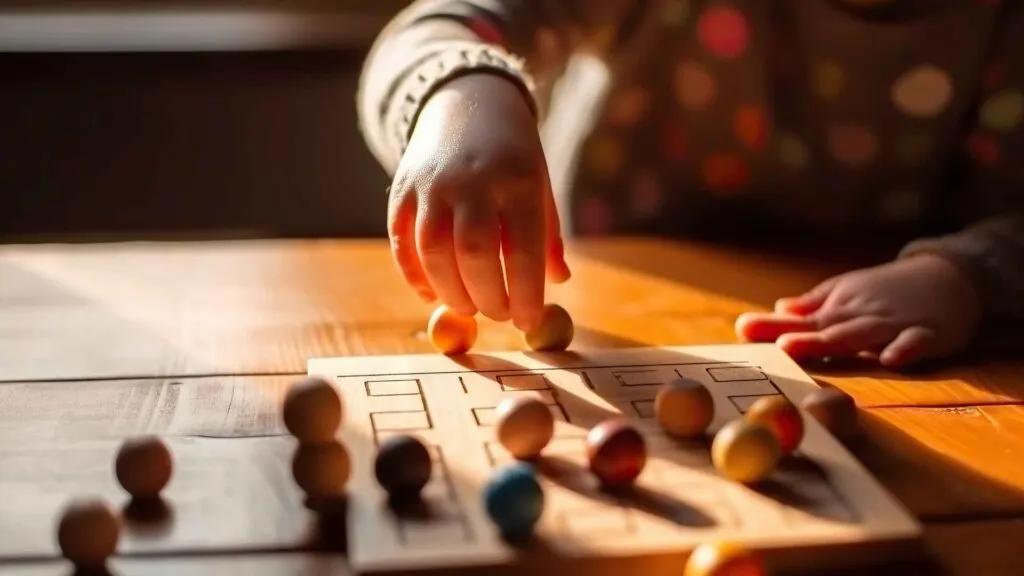
Top 25+ Board Games for 4-Year-Olds
Candy Land
Overview of the Game: Candy Land is a classic board game where players move their pieces along a colorful path to reach the Candy Castle.
- Educational and Fun Aspects: This game helps with color recognition and following simple rules.
- Why It’s Great for 4-Year-Olds: The simple gameplay and bright colors keep young children engaged and excited.
Chutes and Ladders
Game Description and Rules: Players navigate their way up ladders and down chutes in this simple counting game.
- Learning Benefits: Enhances counting skills and introduces basic math concepts.
- Why Kids Love It: The element of surprise with chutes and ladders keeps the game exciting and unpredictable.
Hi Ho! Cherry-O
Game Play and Objective: Players take turns picking cherries from a tree and placing them in their basket.
- Educational Components: Teaches counting and basic arithmetic.
- Parent and Child Feedback: Parents appreciate the educational value, while kids love the hands-on play.
Connect 4
How to Play and Game Features: Players take turns dropping colored discs into a grid, aiming to connect four in a row.
- Strategic Thinking for Young Minds: Encourages planning and foresight.
- Adaptations for Younger Players: Simplified rules and smaller grids can make it easier for younger children.
The Sneaky, Snacky Squirrel Game
Game Mechanics and Goals: Players spin a spinner to collect acorns with a squirrel squeezer, matching them to their color-coded logs.
- Fine Motor Skill Development: Helps develop hand-eye coordination and fine motor skills.
- Fun Factor and Educational Benefits: Combines fun gameplay with learning about colors and counting.
Zingo!
Description of Game Play: A bingo-style game where players match tiles to their cards.
- Literacy and Matching Skills: Promotes letter and word recognition.
- Popularity Among Families: Highly rated by parents for its educational value and engaging format.
Richard Scarry’s Busytown, Eye Found It
Overview of Game: A cooperative game where players search for hidden objects in a large, detailed board.
- Cooperation and Teamwork: Encourages players to work together to find objects and solve the mystery.
- Why It’s Perfect for Preschoolers: The detailed illustrations and cooperative play make it ideal for young children.
Go Fish
Classic Card Game Adaptation: A simple matching game where players ask each other for cards to make pairs.
- Memory and Matching Skills: Enhances memory and matching abilities.
- How to Make It Fun for 4-Year-Olds: Use brightly colored cards with familiar objects or animals to maintain interest.
Memory Game
Different Themes and Variations: Numerous versions featuring popular characters, animals, and objects.
- Enhancing Memory and Concentration: Improves memory through matching pairs.
- Tips for Playing with Young Children: Start with fewer pairs and gradually increase the difficulty as their skills improve.
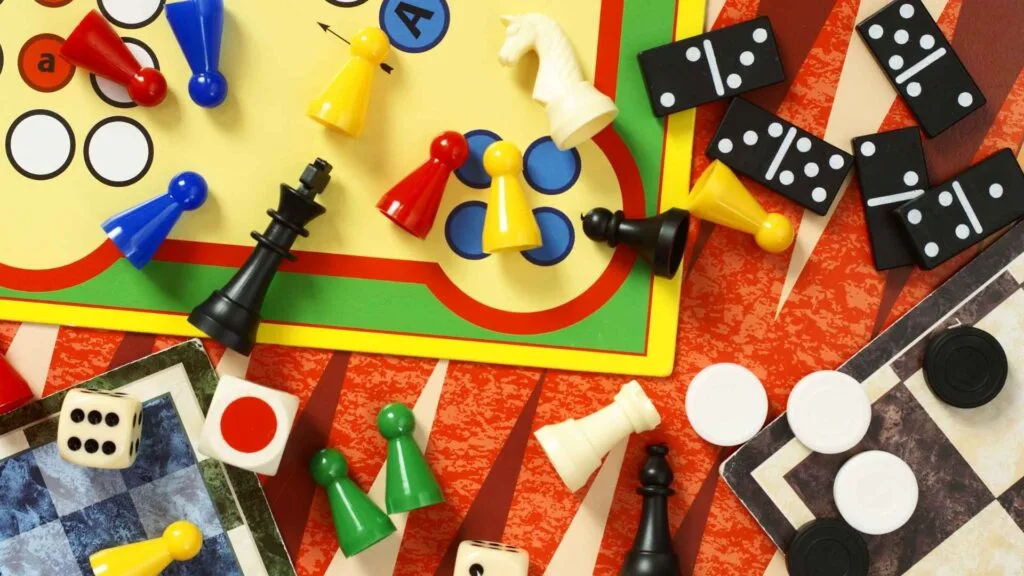
Pete the Cat: The Missing Cupcakes Game
Game Overview: Players work together to get back Pete’s missing cupcakes by completing activities and drawing cards.
- Literacy and Cooperative Play: Encourages reading and teamwork.
- Child and Parent Reviews: Parents love the cooperative element, and kids enjoy the fun challenges.
Hoot Owl Hoot!
Cooperative Game Play: Players work together to help owls fly back to their nest before the sun rises.
- Color Matching and Strategic Thinking: Teaches colors and basic strategy.
- Benefits of Non-Competitive Games: Fosters a sense of teamwork and reduces competitive pressure.
Spot It!
Fast-Paced Matching Game: Players race to spot matching symbols on cards.
- Visual Perception and Reflexes: Sharpens observational skills and quick thinking.
- Adapting Difficulty for Younger Players: Use fewer cards or simplify the rules to suit younger children.
Sequence for Kids
Simplified Version of Sequence: Players use animal cards to create a sequence on the board.
- Strategy and Planning Skills: Introduces basic strategy concepts.
- Age-Appropriate Fun: Easy to understand and enjoyable for young children.
Hungry Hungry Hippos
Classic Fast-Action Game: Players control hippos to gobble up as many marbles as possible.
- Hand-Eye Coordination: Develops motor skills through fast-paced play.
- Family Favorite Feedback: Loved for its simple rules and exciting gameplay.
Don’t Break the Ice
Dexterity and Patience Game: Players tap out ice blocks without letting the character fall.
- How It Benefits Motor Skills: Enhances hand-eye coordination and patience.
- Fun Factor and Reviews: Highly rated for its engaging and tactile play.
Fishing Game
Magnetic Fishing Fun: Players use fishing rods to catch magnetic fish.
- Motor Skills and Concentration: Improves hand-eye coordination and focus.
- Why It’s Engaging for 4-Year-Olds: The interactive nature and colorful fish make it very appealing.
Snug as a Bug in a Rug
Cooperative Matching Game: Players work together to match bugs under the rug.
- Skills Learned and Fun Aspects: Teaches color and shape recognition, and cooperation.
- Parent Testimonials: Praised for its educational value and cooperative gameplay.
Operation
Dexterity and Fine Motor Skills: Players use tweezers to remove objects without setting off the buzzer.
- Simplified Rules for Younger Kids: Use larger pieces and make the game less challenging.
- Fun Factor and Educational Value: Encourages fine motor skills and concentration.
First Orchard
Cooperative Early Learning Game: Players work together to collect fruit before the raven reaches the orchard.
- Color Recognition and Teamwork: Teaches colors and the concept of teamwork.
- Why It’s Ideal for Preschoolers: Simple rules and cooperative play make it perfect for young children.
Yeti in My Spaghetti
Balancing Game Play: Players take turns removing noodles without letting the yeti fall.
- Dexterity and Patience: Develops fine motor skills and patience.
- Child-Friendly Fun: The silly theme and easy-to-understand rules make it a hit with kids.
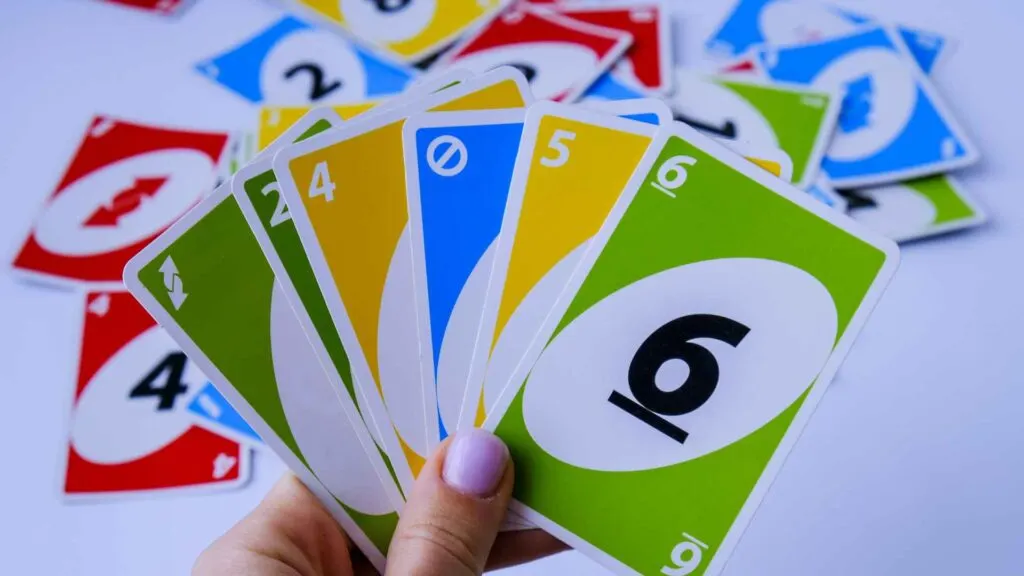
Penguin Pile-Up
Balancing and Stacking Game: Players stack penguins on an iceberg without letting them fall.
- Motor Skills and Problem-Solving: Enhances fine motor skills and spatial awareness.
- Reviews from Parents and Kids: Loved for its engaging gameplay and adorable theme.
Monkey Around
Active Play and Motor Skills: Players complete physical challenges to win.
- Cooperative Challenges: Encourages movement and teamwork.
- How It Engages Young Children: The active play and fun challenges keep kids entertained.
Count Your Chickens
Cooperative Board Game: Players work together to gather chicks and get them back to the coop.
- Counting and Teamwork: Teaches counting and cooperation.
- Educational Benefits: Combines math skills with cooperative play.
Animal Upon Animal
Stacking and Balancing Game: Players take turns stacking wooden animals without letting them fall.
- Fine Motor Skills and Patience: Develops hand-eye coordination and patience.
- Fun and Educational Aspects: Combines fun gameplay with skill development.
Dinosaur Escape
Cooperative Adventure Game: Players work together to get the dinosaurs to safety before the volcano erupts.
- Memory and Teamwork: Enhances memory and promotes teamwork.
- Why Kids Love It: The dinosaur theme and cooperative play make it very appealing.
Super Why ABC Letter Game
Literacy-Focused Game: Players move around the board and answer questions about letters and sounds.
- Letter Recognition and Phonics: Promotes literacy skills.
- Parental Reviews and Feedback: Praised for its educational content and engaging format.
Tips for Playing Board Games with 4-Year-Olds
Keeping It Fun
Making sure that game time is enjoyable is key to maintaining a 4-year-old’s interest and enthusiasm.
- Be Enthusiastic: Show excitement about the game to encourage your child to join in.
- Short and Sweet: Keep game sessions short to match their attention span. If a game is too long, consider breaking it into shorter rounds.
- Celebrate Participation: Focus on the fun of playing rather than winning or losing. Celebrate their efforts and progress.
Encouraging Participation
Getting reluctant players involved can sometimes be a challenge, but with a few strategies, you can make it easier.
- Lead by Example: Play the game yourself and show how much fun it can be. Children often imitate their parents’ enthusiasm.
- Choose Favorites: Let your child pick which game to play. Giving them a choice can make them more eager to participate.
- Adapt the Rules: Simplify the rules or modify the game to suit your child’s abilities. The goal is to ensure they can participate comfortably.
Educational Opportunities
Board games are not only fun but also great learning tools. Here’s how to maximize their educational value.
- Discuss the Game: Talk about what’s happening in the game. Ask questions like, “What color is that piece?” or “How many spaces do we move?”
- Praise Problem-Solving: When your child makes a good move or solves a problem, praise their thinking and effort.
- Reinforce Learning: Use the game to reinforce concepts they are learning elsewhere, such as counting, matching, or following instructions.
By keeping the experience positive and engaging, you can help your child develop a love for board games that will benefit their learning and social skills.
Conclusion
Recap of Benefits
Board games offer a multitude of benefits for 4-year-olds, making them an excellent choice for family activities.
- Educational Growth: They promote cognitive development by teaching colors, numbers, letters, and problem-solving skills.
- Social Skills: Playing board games helps children learn about taking turns, following rules, and working together.
- Family Bonding: Board games provide a wonderful opportunity for families to spend quality time together, creating lasting memories.
Encouraging Family Game Time
Regularly playing board games can become a cherished family tradition.
- Set a Schedule: Designate a regular game night to ensure consistency. This can be weekly or bi-weekly, depending on your family’s schedule.
- Create a Fun Atmosphere: Make game time special with snacks, a comfortable setting, and a positive attitude.
- Involve Everyone: Encourage all family members to join in, regardless of age. Choose games that are inclusive and enjoyable for everyone.
Final Thoughts
Introducing board games to your 4-year-old is a wonderful way to support their development while having fun.
- Try Different Games: Experiment with various games to find what your child enjoys most. Each game offers unique benefits and experiences.
- Be Patient: Understand that young children may take time to grasp the rules. Be patient and provide gentle guidance.
- Focus on Fun: Above all, ensure that game time is enjoyable. The goal is to foster a love of games and learning.
Board games are more than just a pastime; they are tools for growth, learning, and connection. By incorporating board games into your family routine, you can enrich your child’s development and create joyful moments together.
